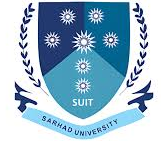Stress Management, Worklife Balance, Employee's Wellbeing, and Psychological Capital among IT Employees of Pakistan
Keywords:
Job stress, Worklife Balance, Psychological Capital, Employee’s WellbeingAbstract
The study investigates the impact of stress management and work-life balance on employee well-being, exploring the moderating role of psychological capital (PsyCap) among IT employees in Pakistan. The findings reveal significant positive correlations between stress management, work-life balance, and employee well-being. Psychological capital acts as a moderator, amplifying the positive effects of stress management and work-life balance on well-being. Employees with higher PsyCap resources are better equipped to manage stress, achieve work-life balance, and experience greater well-being. These findings highlight the importance of promoting stress management practices and PsyCap development in organizations to foster a healthier and more productive work environment for IT employees.
Downloads
Published
Issue
Section
License
Copyright (c) 2024 Laiba Asif, Tayyeb Ali

This work is licensed under a Creative Commons Attribution 4.0 International License.
Submission of an original manuscript to the Journal will be taken to mean that it represents original work not previously published, that it is not being considered elsewhere for publication. And if accepted for publication, it will be published in print and online and it will not be published elsewhere.
The journal main policy reflects in its stance that the publication of scholarly research is exclusively meant to disseminate knowledge and not-for-purposes.
Copyright Statment
Sarhad Journal of Management Sciences is published by Sarhad University of Science and Information Technology Peshawar. This copyright statement entails that all contents (including text, tables, graphs, images, or any materials that is part and parcel of a research article submitted to the journal) belong to/ property of the person who owned it prior to submission this journal. Publication of the submitted article will not affect the ownership of copyright of the subject materials. SJMS and its users benefit from a general licence over all content submitted under a Creative Commons CC-BY licence over all content. However, content which is not part of the submitted article, is the property of SJMS. In a nutshell, the combination of all content on the SJMS website, the look and feel of the website, is the property of Sarhad University of Science and Information Technology Peshawar.
As an author or contributor, you grant permission to others to reproduce your articles, including any graphics and third-party materials supplied by you, in accordance with the SJMS Terms and Conditions. The licence granted to third parties over all contents of each article, including third-party elements, is a Creative Commons Attribution ("CC BY") licence. The current version is CC-BY, version 4.0 (http://creativecommons.org/licenses/by/4.0/), and the licence will automatically be updated as and when updated by the Creative Commons organisation.
You may include a requirement to reproduce copyright notices but you may not restrict the right to reproduce the entire article, including third-party graphics. This means that you must obtain any necessary third-party consents and permissions to reproduce third-party materials in your articles submitted to SJMS.
Copyright Statement updated September 13, 2022.




